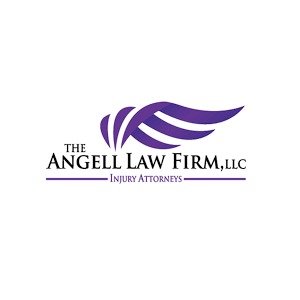Best Defamation Lawyers in Atlanta
Share your needs with us, get contacted by law firms.
Free. Takes 2 min.
List of the best lawyers in Atlanta, United States
About Defamation Law in Atlanta, United States
Defamation law in Atlanta, Georgia, like many places in the United States, covers false statements made about a person either verbally (slander) or in writing (libel) that cause harm to their reputation. The key factor to note with Georgia's defamation law is that truth is an absolute defense. Therefore, a defamatory comment if proven to be true cannot be considered as an act of defamation.
Why You May Need a Lawyer
Defamation law can be complex; aside from determining whether a claim is actually defamatory, there may be defenses available that an experienced defamation attorney can identify. Additionally, an attorney can help you quantify damages, navigate court processes, and negotiate potential settlements. If you believe you've been a victim of defamation, or you're accused of defamation, hiring an attorney is a wise decision.
Local Laws Overview
In Atlanta and the larger state of Georgia, several local laws are especially relevant to defamation suits. The statute of limitations for defamation is one year from the date the defamatory statement was made. Atlanta law also distinguishes between defamation per se (statements which are clearly damaging on their face) and defamation per quod (statements which are defamatory only when additional facts are known), which affect the types and amounts of damages that can be claimed.
Frequently Asked Questions
What Is The Difference Between Defamation, Slander And Libel?
Defamation is the general term used globally to refer to any statement that injures someone's reputation. If the statement is made in writing and published, the defamation is called "libel." If the hurtful statement is spoken, the offense is "slander."
Can You Sue For Defamation In Atlanta?
Yes, you can sue for defamation in Atlanta. However, you will need to prove that the statement was false, brought harm to you, and that it was made without adequate research to confirm its truthfulness.
Can I Claim Damages In a Defamation Suit?
Claiming damages in defamation cases in Georgia often depends on demonstrating specific harm. For slander, showing damage to your reputation or the suffering of financial loss is necessary. With libel, damages are assumed and do not require such proof.
Can Opinions Be Defamatory?
In general, the law considers opinions as protected speech. However, merely labeling a statement as your "opinion" does not make it invincible to a defamation claim. If your "opinion" is understood to be a factual assertion, it might still be defamatory.
Can Corporations Defame?
Yes, corporations can also defame individuals or other businesses. If a corporation makes false statements that harm another party's reputation, they can be sued for defamation.
Additional Resources
For additional information about defamation law in Atlanta, a good place to start is the Georgia Bar Association's website. Additionally, resources like the American Civil Liberties Union (ACLU) of Georgia and the Atlanta Legal Aid Society can provide insightful information on free speech and defamation laws in Atlanta and the United States in general.
Next Steps
If you believe that you have been defamed or are accused of defaming someone, the first step is to consult with a lawyer who specializes in defamation law. The Georgia State Bar Association provides a directory of lawyers organized by their area of specialization. Additionally, keep any evidence that might be useful for your case: this could involve preserving problematic statements, saving emails, texts or online posts, and documenting any harm to your reputation. Consulting a professional as soon as possible will give you the best possible chance of successfully navigating a defamation claim.
Lawzana helps you find the best lawyers and law firms in Atlanta through a curated and pre-screened list of qualified legal professionals. Our platform offers rankings and detailed profiles of attorneys and law firms, allowing you to compare based on practice areas, including Defamation, experience, and client feedback.
Each profile includes a description of the firm's areas of practice, client reviews, team members and partners, year of establishment, spoken languages, office locations, contact information, social media presence, and any published articles or resources. Most firms on our platform speak English and are experienced in both local and international legal matters.
Get a quote from top-rated law firms in Atlanta, United States — quickly, securely, and without unnecessary hassle.
Disclaimer:
The information provided on this page is for general informational purposes only and does not constitute legal advice. While we strive to ensure the accuracy and relevance of the content, legal information may change over time, and interpretations of the law can vary. You should always consult with a qualified legal professional for advice specific to your situation.
We disclaim all liability for actions taken or not taken based on the content of this page. If you believe any information is incorrect or outdated, please contact us, and we will review and update it where appropriate.








